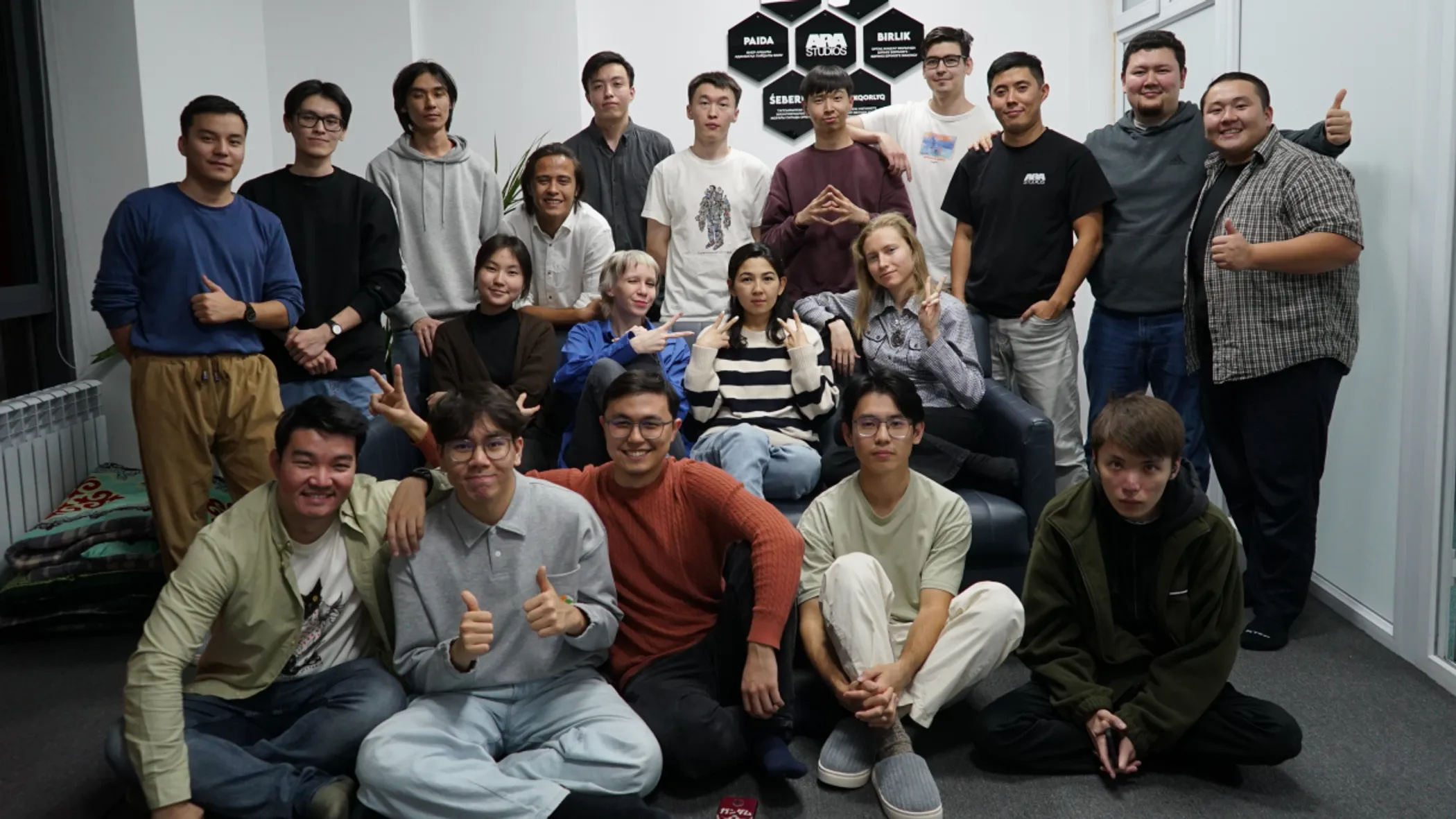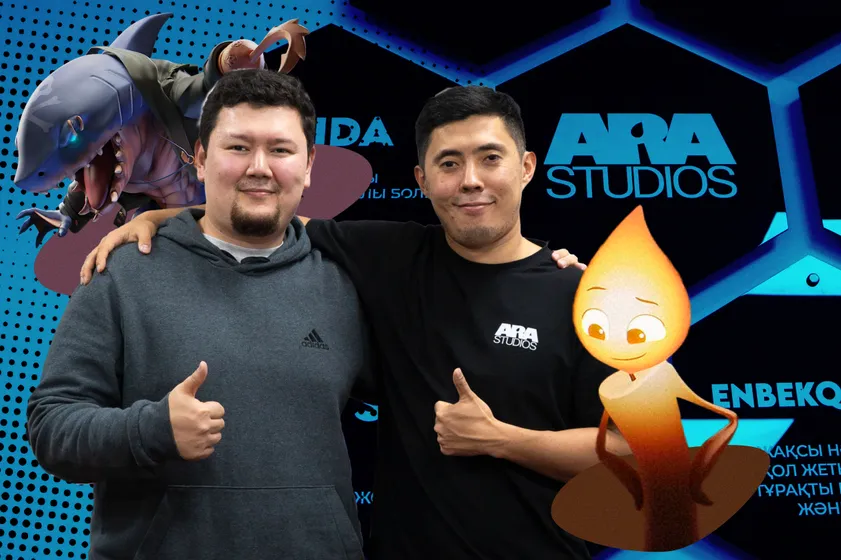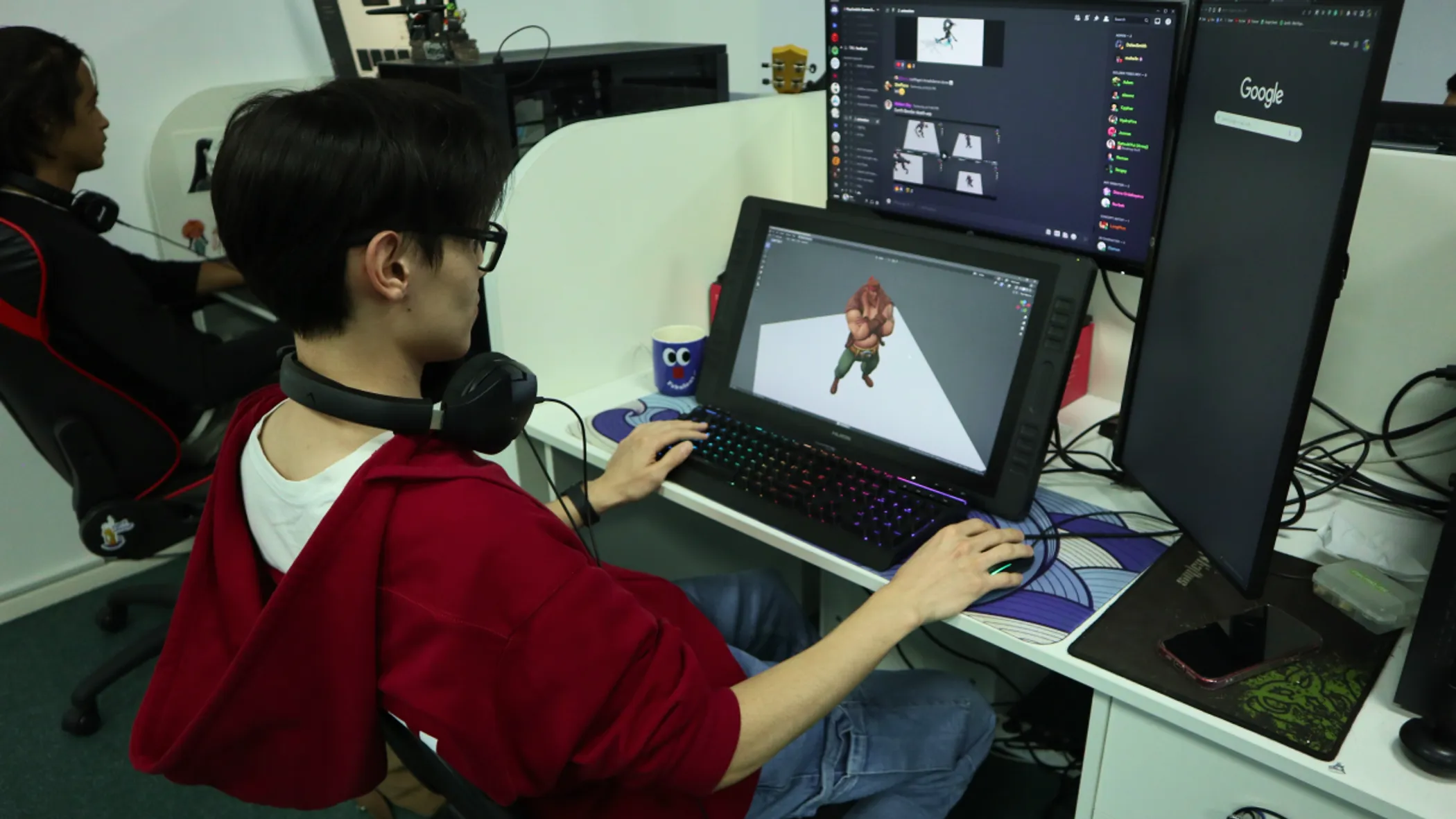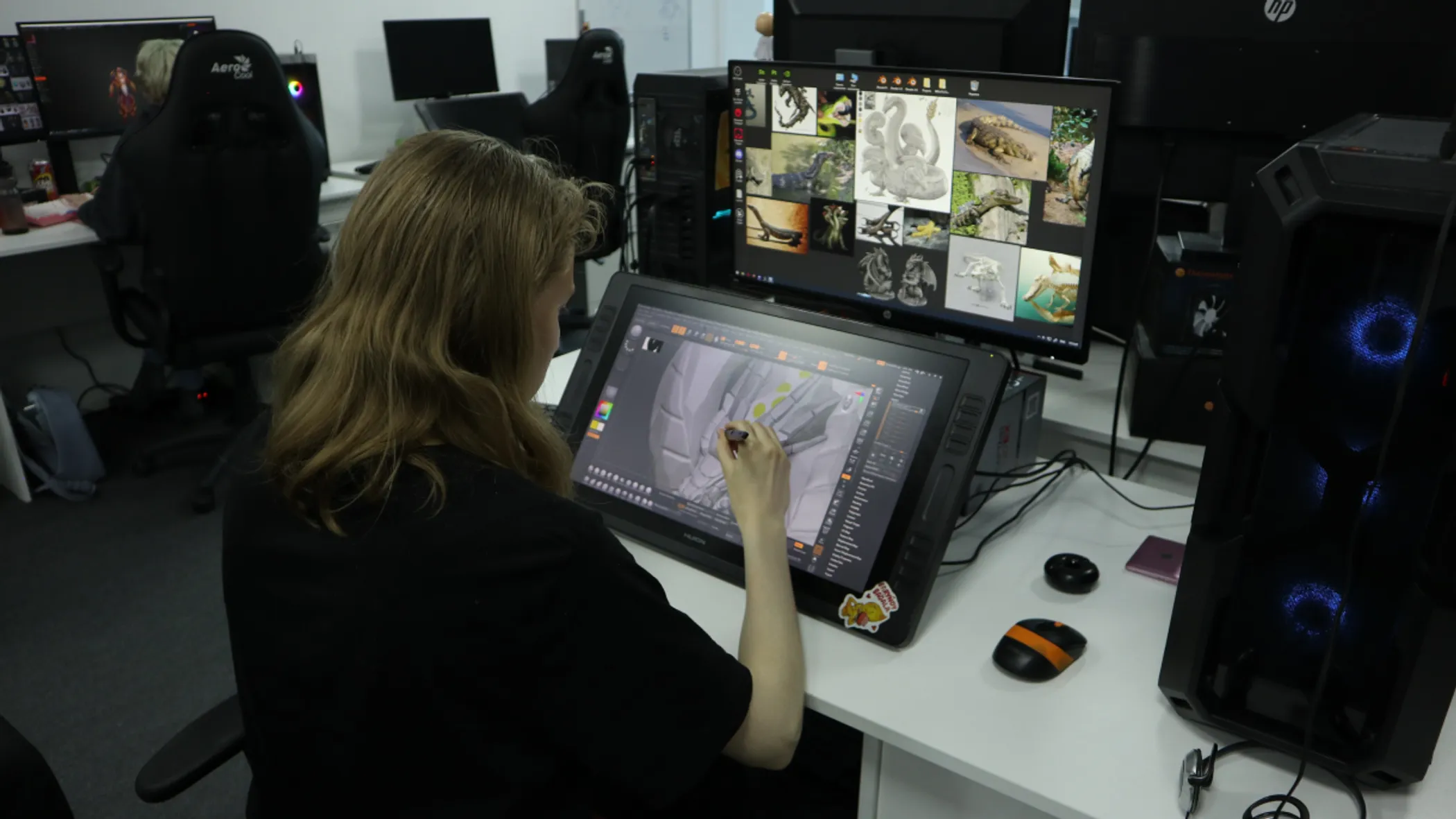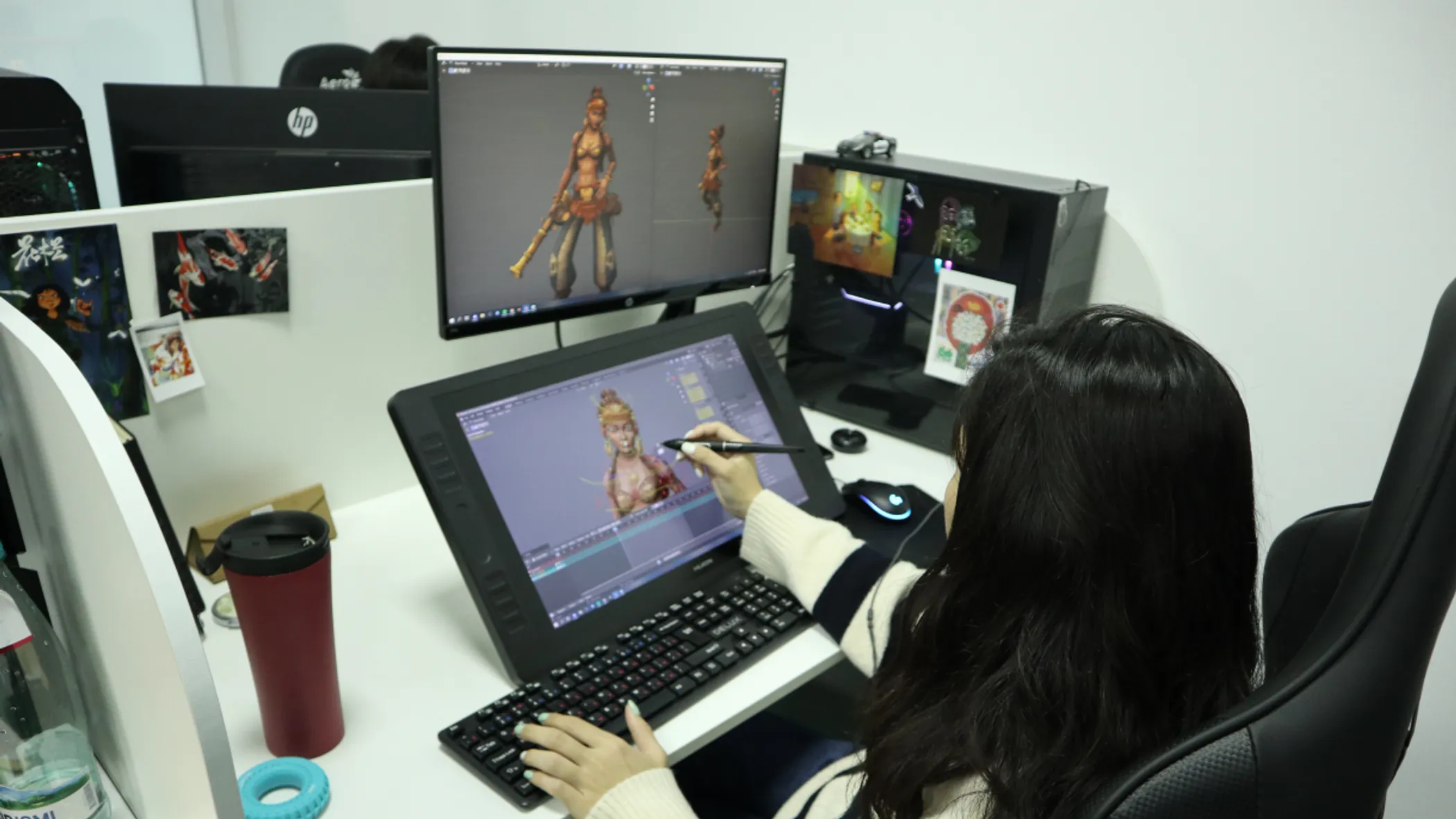Animation studios in Kazakhstan are experiencing a surge in recognition, with local projects garnering positive international acclaim. Notably, Tasqyn studio achieved success with their short film 'Seriktes,' earning an award in France. The government has shown a keen interest in this growing industry, establishing the Qazaq Animation Association last year and outlining plans to develop creative industry centers in major cities across the country.
ARA Studios, based in Almaty, stands as a compelling example of the creative prowess within our local landscape. The studio boasts a sizable team of animators, engages in international projects, and has even established its own academy to nurture emerging talent in Kazakhstan, already leaving a mark on the industry.
The studio's ambitious 24-minute film, 'Shyraq,' has captured the hearts of over 250 thousand viewers since its recent release on YouTube. 'You truly need to experience it for yourself,' emphasized Bakhytzhan Shabdukarim, ARA Studio's producer, during an in-depth studio tour conducted for a QazMonitor reporter a few days prior to the film's release.
In an exclusive interview with QazMonitor, ARA Studios producer tells about Kazakhstan's animation industry, detailing the studio's evolution from a small team of enthusiasts to a creative powerhouse with a dedicated mission: crafting animated narratives infused with spiritual values.
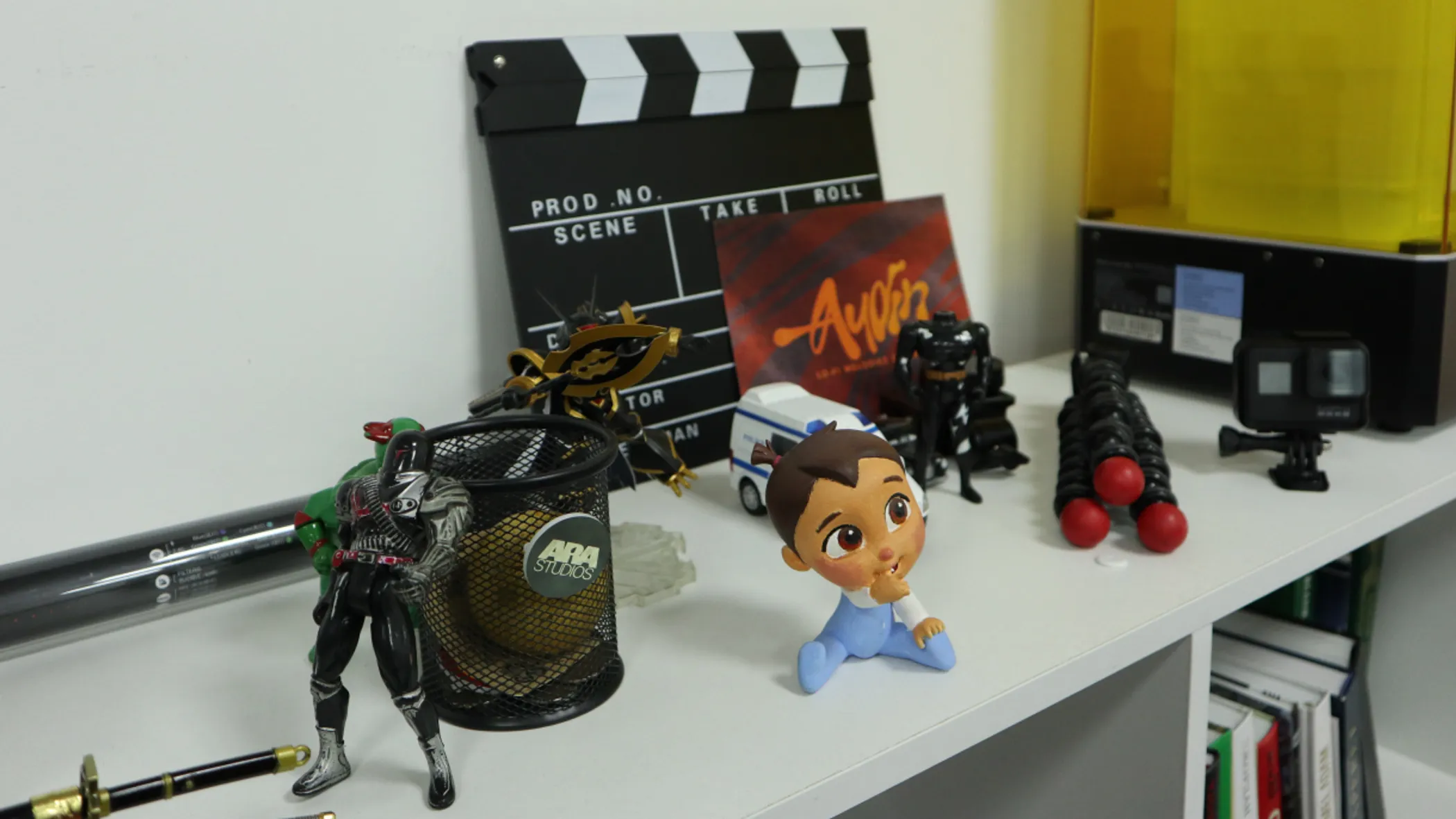
How was ARA Studios created?
The studio started with Meirzhan Sandybay, my partner, who was based in Astana at the time. We DM’ed each other on Instagram, we were all beginners at the time, I was also a beginner 3D artist at the time. I got to know this person through his short film "The Dog", which had already been shot. And thanks to that film we met [QM - the film hit over 2 million views on YouTube].
Meirzhan came to Almaty to meet personally and it was suggested that we try a joint animation project. It was the "SABI" animated series project Balapan TV channel. It’s a story about a girl and her friends a dinosaur, a robot, a dog, and a fish.
We started as a team of four people. The first experience was challenging, especially given that this was a whole series, a short film. We had no experience, but we were charged with enthusiasm. We just took a risk because we didn't know what kind of work awaited us.
Was it difficult to keep up with such a small team?
The first season was supposed to be 26 episodes, that's the world standard in production. We shot the first episode in a month and a half or two months, and we had no more than six months left for the production as a whole. The realization only came later, "What to do? Yeah, how are we going to make it in time?" In the end, we didn't have time, we worked day and night, on weekends too, to deliver this project.
There weren't many of us, but slowly students from local universities, not necessarily art universities by the way, joined in. And we did finish it, we were late in handing in the project, but we did it. Even though it was hard, we were offered a second season right away.
For the second season of the cartoon - it was 2020-2021 - our team had doubled in size. We already understood how to optimize the pipeline, we were much better prepared and adequately assessed the deadline, knowing that we needed more time. We paced ourselves much better.
After you made yourselves known with such a large-scale series, did you immediately start to have more projects?
No, we had times when we were sitting without a project at all. There were some small commercial projects, but there were times when we didn't have any at all. But, fortunately, we had one foreign customer, who thanks to these small projects was able to earn a good reputation and started working on a big game development project, which we are doing now.
You are talking about your work with Psychedelic Games?
Yes. At that time they were not Psychedelic Games yet, they were just ordinary guys from the US, who also did outsourced work, but decided to make a labor-of-love kind of game dev project — Golden Tides. It is a Multiplayer Online Battle Arena game with a large open map in a fantasy-pirate setting. In a nutshell, the players hunt for treasure chests on their ships, and they must deliver the treasure to a certain place, defending it from other teams.
What is your team's role in this project?
Our team is only responsible for the visuals. We don't code at all or get involved in the mechanics of the game. We are given, say, the concept of characters or locations. Our team does all the modeling, animation, drawing, creating worlds and locations for them, and pass it all on to their developer team. At the same, time we are working on the cinematic videos for the game.
Since the game is stylized, there are some subtleties in working on animation. For example, we fundamentally do not use motion capture, and manually pose the game characters, as their movements and poses should be a little exaggerated. So, our team has put a lot of their ideas into the visuals of the game.
Your short film Shyraq has already reached over 250 thousand views. Are there any new projects the studio is working on?
In our spare time, we have been developing a new animated series called Solar Cats, for about a year now. I can't reveal many details yet, but in summary, it's a story about a family of supercats, who while working their family issues out, unite, and give a fight to the villain-rat.
In this project, we want to explore the theme of family values, relationships between parents and children, as well as situations happening outside the home, at school, social issues, bullying, some bad habits, and so on. I can't say right now, but these are examples of what we want to talk about.
We consult with a psychologist, who helps us to convey the plausibility of these stories so that the children can associate themselves with these characters. [We strive to] portray situations and show solutions of how [to build] unity, and well-being in the family. This is the essence of the series, solving these problems, uniting, and through unity defeating the villain.
Sounds exciting! Let's talk about the animation industry in Kazakhstan as a whole. What is needed to make a breakthrough in animation in our country? More professionals maybe?
We need to make our own product that will be exported. But I would not say that there are no such projects at all. There are short movies, some animated studios are already getting traction outside the country. For example, there is a relatively young studio called Tasqyn. Or, there is a company in Almaty called Singularity Lab, which makes VR applications not only for games but also for educational purposes.
It would be good to open several universities in Kazakhstan, where local and foreign professionals from the industry will be invited. There are top specialists in Kazakhstan who work individually or in groups as freelancers. These same guys should be invited to these universities, offered good conditions, and motivated to teach others.
If every city has such a university, or maybe even training from school years, then the problem of having enough professionals will be solved within, say, five years. That will be it, then people will create big projects.
Speaking of which, would you like to make a feature-length film?
A feature is the peak for any studio. Of course, we have ideas and a concept, but this is where we return to the subject of education. [That wouldn’t be possible] without enough specialists who not only know their craft well but are in tune with us in values.
And this is also very important - to create a favorable environment, so to speak, where the state understands how important it is. For example, Astana Hub and the Digital Bridge forum are good examples of the great support for the IT in the country. People are actually creating a lot of products now and exporting them. Our sphere needs the same.
Do you think we will soon see such examples in animation in our country?
Of course. Life is full of surprises, it may be that soon something like this will emerge. People, probably, need successful examples to motivate themselves - this is our personal opinion and observation. Let's say, like Gennady Golovkin or Dimash Kudaibergen. These are people who have made it to the export market by their own efforts, they are known all over the world.
By the way, I think it is better not to use the word 'self-made person' here at all. There is always someone helping, a large team of like-minded people behind any success. It's like backend and frontend development in IT, you know.
Sounds similar to animation works. People see a movie, a finished product, but behind it is...
A huge team, yeah. I mean, one person doesn’t mean anything at all: the director or the producer or whoever else is there, some kind of boss. They don't matter much separately. The projects don't get done because there's some person out there generating brilliant ideas. They happen thanks to people getting together and believing in what they do. ‘We believe in it, let's make it happen.’
